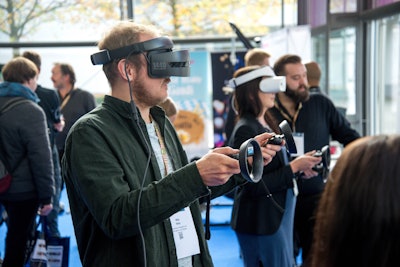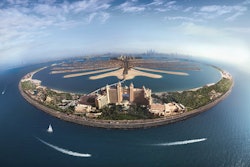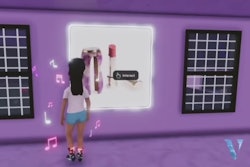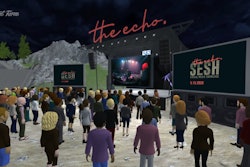
Austin Johnston is the founder and CEO of AKJOHNSTON Group, an Anaheim, Calif.-based design and production firm with clients including YSL Beauty, Anheuser-Busch, ViacomCBS, Levi’s and Hyundai.
After 14 years of introducing clients’ stories through experiences, we, as event producers, have had the pleasure of building immersive spaces and worlds that take people on paths of discovery that I argue is unachievable in any other industry. Whether we are building theme park rides or recreating detailed sets, we have always felt so comfortable in our realm of physical experience—it’s in our DNA!
But, as most have recently diversified their offerings, we too have added content and media folks on our team, and for years have explored projection mapping, robotics building, microsite development and gamification for our clients within experiences. As others have these past 19 months, we even flexed to accommodate a world of virtual and hybrid events to conform to the needs of our clients.
But just as we begin to see “normal” again, Meta, the new identity of Facebook, introduces new unknowns and uncharted paths for those of us in the world of rich and immersive consumer experiences.
Speaking with established colleagues, I was surprised to hear how many plan to shift their agencies to model something in pursuit of content and digital experiences, and, ultimately, how those agencies plan to address new offerings that brands will soon be asking for: metaverse experiential. (To be honest, when the founder of the metaverse states this being almost a decade out, I am surprised to hear so many responding that they plan to cater to this so early in the game—but, hey, you do you!)
In an even more recent Fortune article, Bill Gates predicts work meetings going completely meta in two to three years, and I think he is right. So, if that scares you, then be scared! What I think you may want to consider is my prediction once Gates’ is validated: that brands and companies will place more value within—and shift more funds to—complex IRL storytelling that belongs exclusively in a physical space. So, yes, you will lose the four medium-size events per year from Client X, but in its place will be three meta meetings and one major IRL throwdown that promises a robust spend on analog, in-person attributes to a real experience that can only be attended live.
Maybe this is how you have been feeling too—wondering if you should adapt to the inevitable ask, focusing away from catering and fabrication and more on digital development. Certainly there’s a market that I won’t deny, but I also want to add a bold take that AKJOHNSTON Group has on this one: We aren’t investing anything in meta and would be happy to refer you to a well-established partner that can really elevate that for you—but it’s not us!
So why would a business owner like myself state this so publicly to our industry? Well, I hope we can learn from our 2020 shift where we all became overnight virtual producers as we certainly did, but I am not doing that with our team moving forward. We did not start our firm to do that, and there’s no passion for it, so I am doubling down on analog(ish), and hope our clients and friends can see that we believe in it, we understand it and we are really good at it.
As audiences are faced with rich virtual journeys, we feel they will become dramatically more polarized in their desires for highly analog environments and experiences that are completely devoid of technology and digital components.
We have already seen this for years within the marketing spaces with brands like American Express finding vast success in tried-and-true hospitality and events (from tennis tournaments to speakeasies at lounges) while balancing that with rich digital experiences that steer clients to engage exclusively through tech. Their introduction of a Prada wristlet as a tap-to-pay card for its Centurion holders contrasts dramatically with their no-card-issued entry-level products that are entirely digital, using ApplePay as a facilitator. The example is this: They are investing in two far spectrums of high-touch, IRL experiences while also perfecting an efficient and enjoyable digital interface—and it is paying off!
Let's move to something more for everyone: Bumble. The brand was built to take dating out of a bar and into an app, but what have they spent the most money on with its experiences? Building pop-up bars and bodegas for people to meet in person. But that is the point: The more digital we get, the more we crave balance to satisfy the human experience and emotion that we so desperately need.
We look at our clients and their needs and desires, then I look at our capabilities and where we really shine… for AKJOHNSTON, we are going to confidently stay in our lane, certain that the more digital grows into the big shoes that the metaverse no doubt needs to fill, we plan to continue to grow without touching one pair of Oculus goggles and, instead, creating highly valued consumer experiences in real life.



















